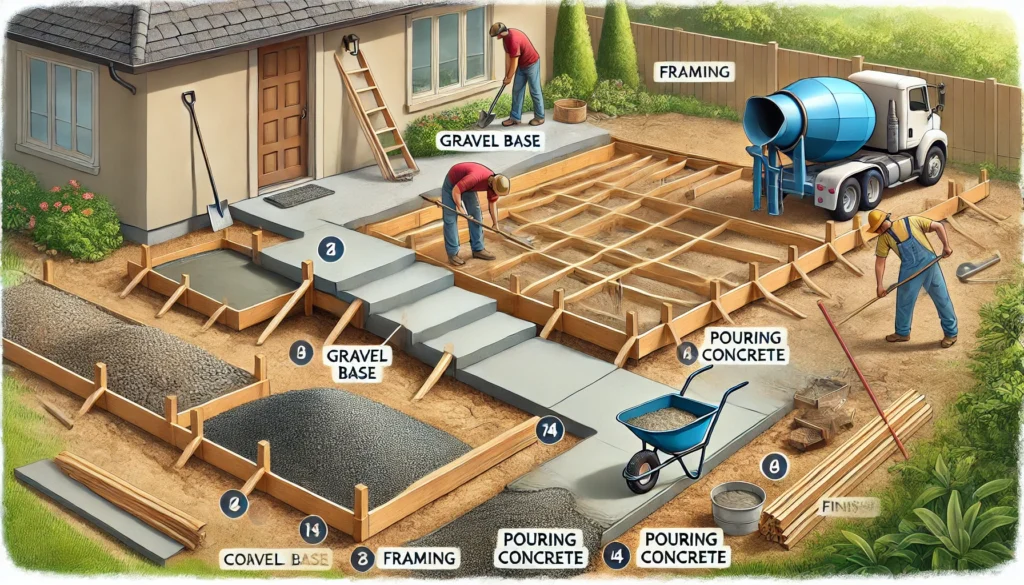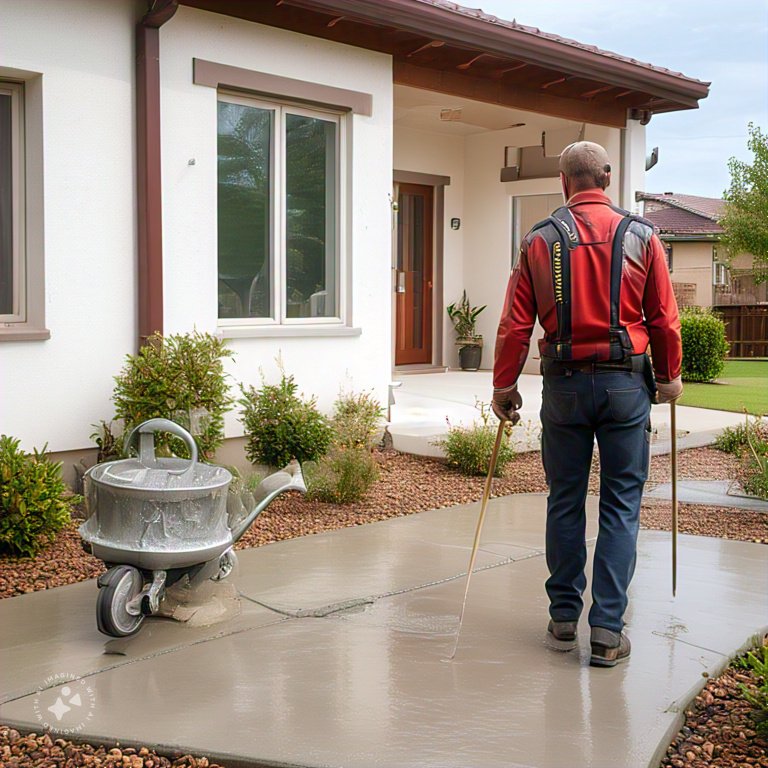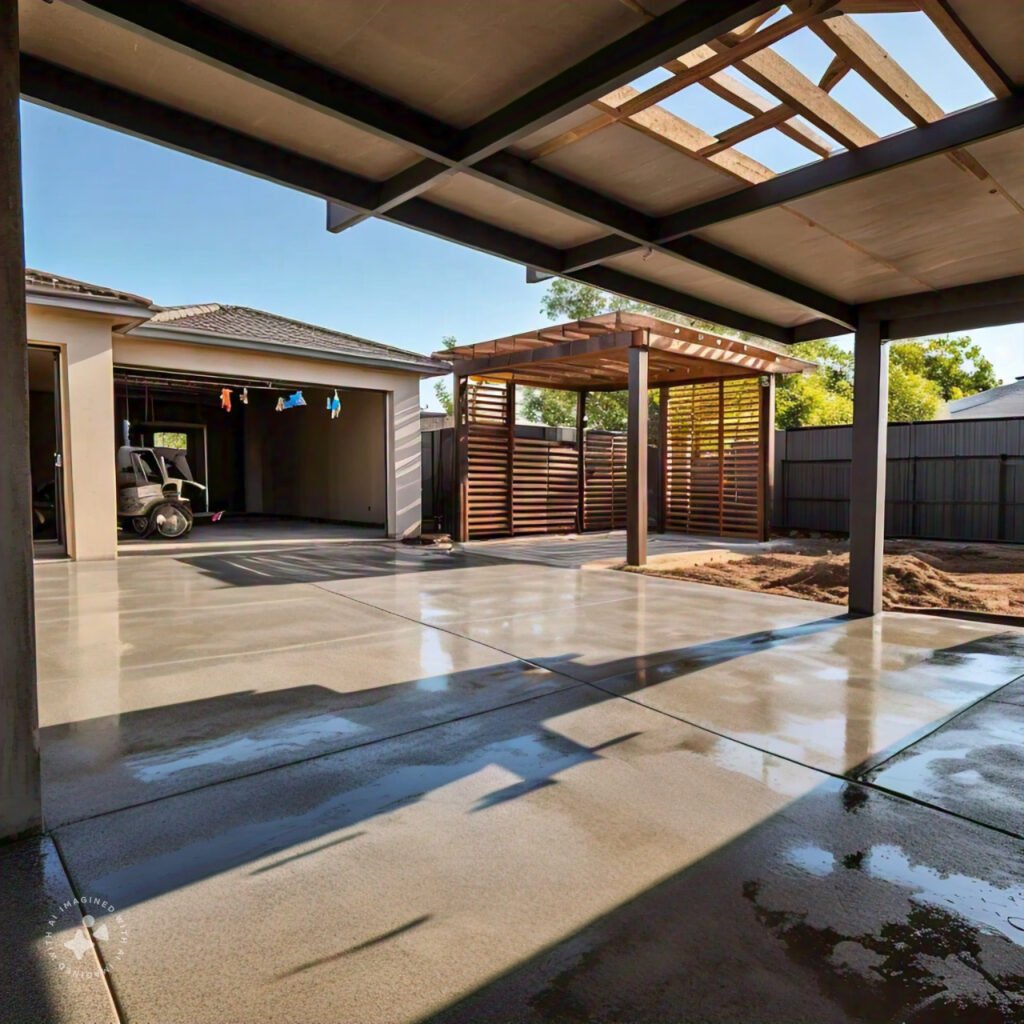Estimating Concrete Walkway Costs: A Complete Guide
Concrete walkways are a practical addition to any home, offering durability, versatility, and a sleek appearance. However, understanding the costs involved—whether you’re tackling a DIY project or hiring a professional—is crucial for proper budgeting. This guide breaks down everything you need to know, from calculating materials to understanding contractor pricing, ensuring you’re equipped with the knowledge to make informed decisions.
DIY Concrete Walkway Cost Breakdown
If you’re considering a do-it-yourself approach, you need to account for material costs, tools, and additional supplies. Here’s a detailed breakdown:
- Concrete and Gravel Base: Concrete generally costs $75 per cubic yard, and you’ll need a 4-inch gravel base to support it.
- Forming Materials: Typically include 2×4 or 2×6 lumber for straight paths, stakes, and screws.
- Reinforcements and Tools: Reinforcing the concrete with wire mesh or rebar can add to the cost. You may also need a concrete mixer, tamper, and finishing tools.
Calculating Materials for a DIY Project
To determine how much concrete you need, calculate the area in square feet (length x width) and then multiply by 0.33 (for 4-inch thickness). Divide the result by 27 to convert cubic feet to cubic yards. This will give you the total amount of concrete and gravel required for your project.
Professional Concrete Walkway Costs
For those opting to hire a contractor, understanding the pricing tiers is essential:
- Basic Concrete Walkway: $6-$10 per square foot for plain concrete or simple finishes.
- Mid-range Walkway: $10-$12 per square foot, including stamped finishes or colored concrete.
- High-End Walkway: $12+ per square foot for intricate designs, patterns, or custom finishes.
Factors Affecting Concrete Walkway Costs
- Location & Availability: Prices can vary significantly depending on local supply and labor costs.
- Complexity of Design: Adding curves, custom patterns, or intricate designs can increase labor time and material costs.
- Finishes and Sealers: Sealers and decorative finishes may add to your budget but can enhance durability and aesthetic appeal.
Tips to Save on Concrete Walkway Costs
- Compare Multiple Quotes: Get at least three quotes from local contractors to find the best price.
- Consider Pre-Mixed Options: For smaller projects, pre-mixed concrete can be more cost-effective than large truck deliveries.
- Optimize Your Design: Keep the design simple to reduce the need for additional forming materials and labor costs.
Conclusion
Whether you’re tackling a DIY concrete walkway or hiring a professional, understanding the factors that impact cost is essential. DIY projects can save money but may require more labor and tool rentals, while professionals offer convenience and high-quality finishes. Choose the option that best fits your budget and aesthetic preferences.
FAQs
1. How thick should a concrete walkway be? A concrete walkway should typically be 4 inches thick to support foot traffic. If vehicles will use the path, increase thickness to 6 inches.
2. Can I pour concrete over an existing walkway? Yes, but it’s essential to ensure the current walkway is structurally sound and properly prepared. Adding a bonding agent can help adhere new concrete.
3. What is the best finish for a concrete walkway? A broom finish is ideal for slip resistance, while stamped concrete offers a decorative look. Choose based on the function and design preference.
4. Should I use rebar or mesh for reinforcement? For most walkways, wire mesh is sufficient. However, for heavier loads or uneven ground, use rebar to prevent cracking.
5. How long does it take to cure a concrete walkway? Concrete walkways typically take 24-48 hours to set enough for foot traffic but require 28 days to fully cure and reach maximum strength.


